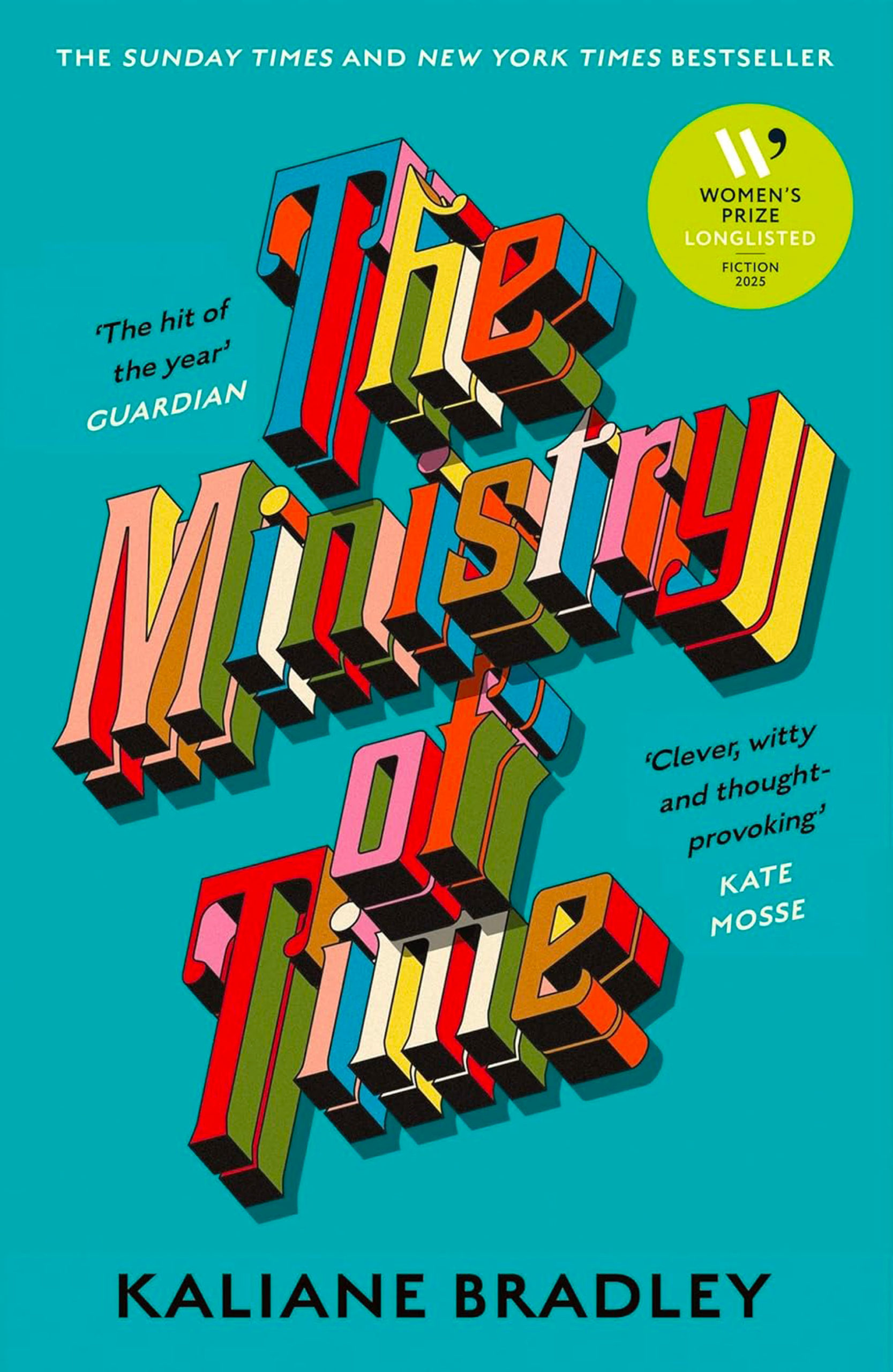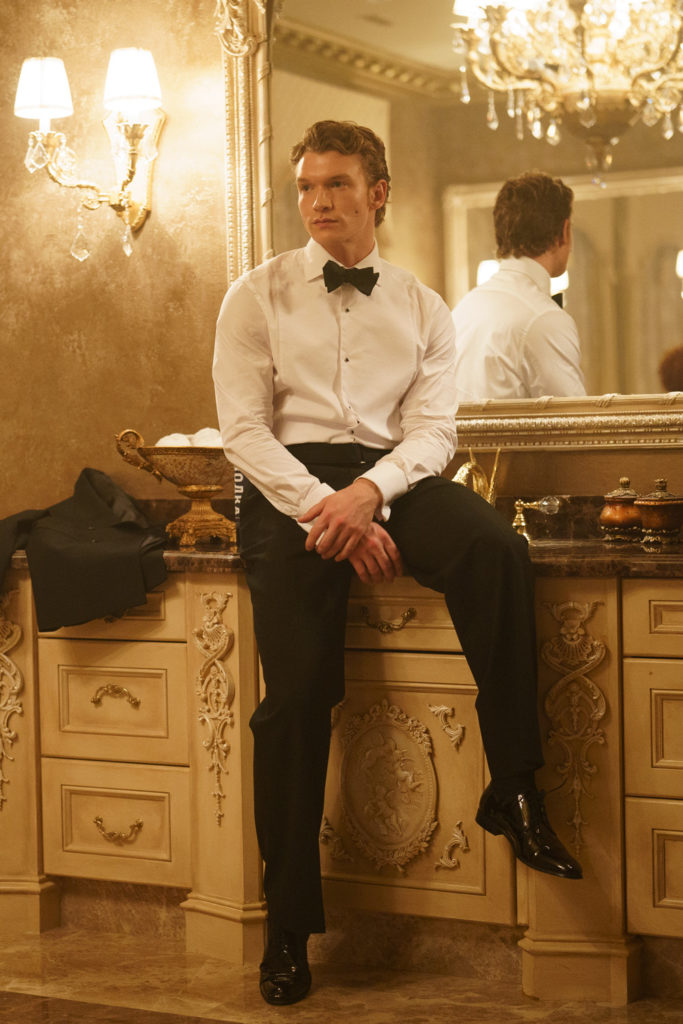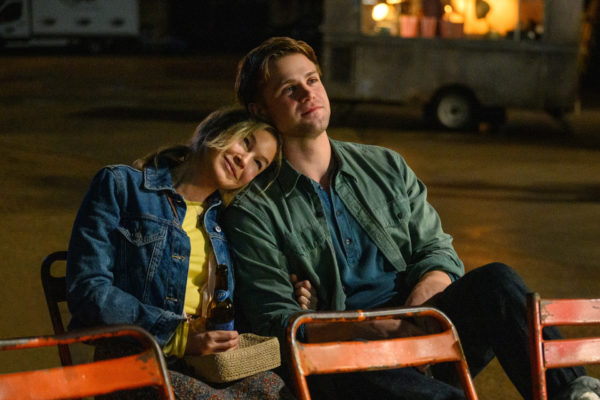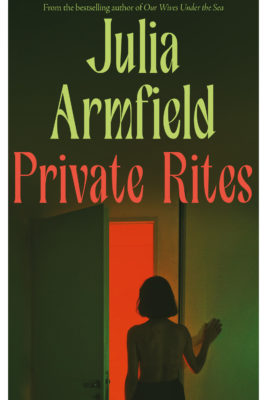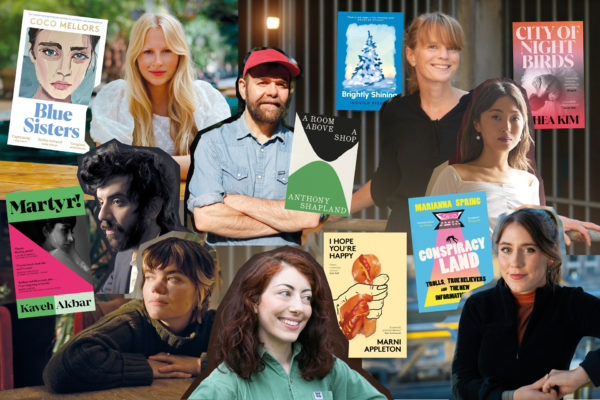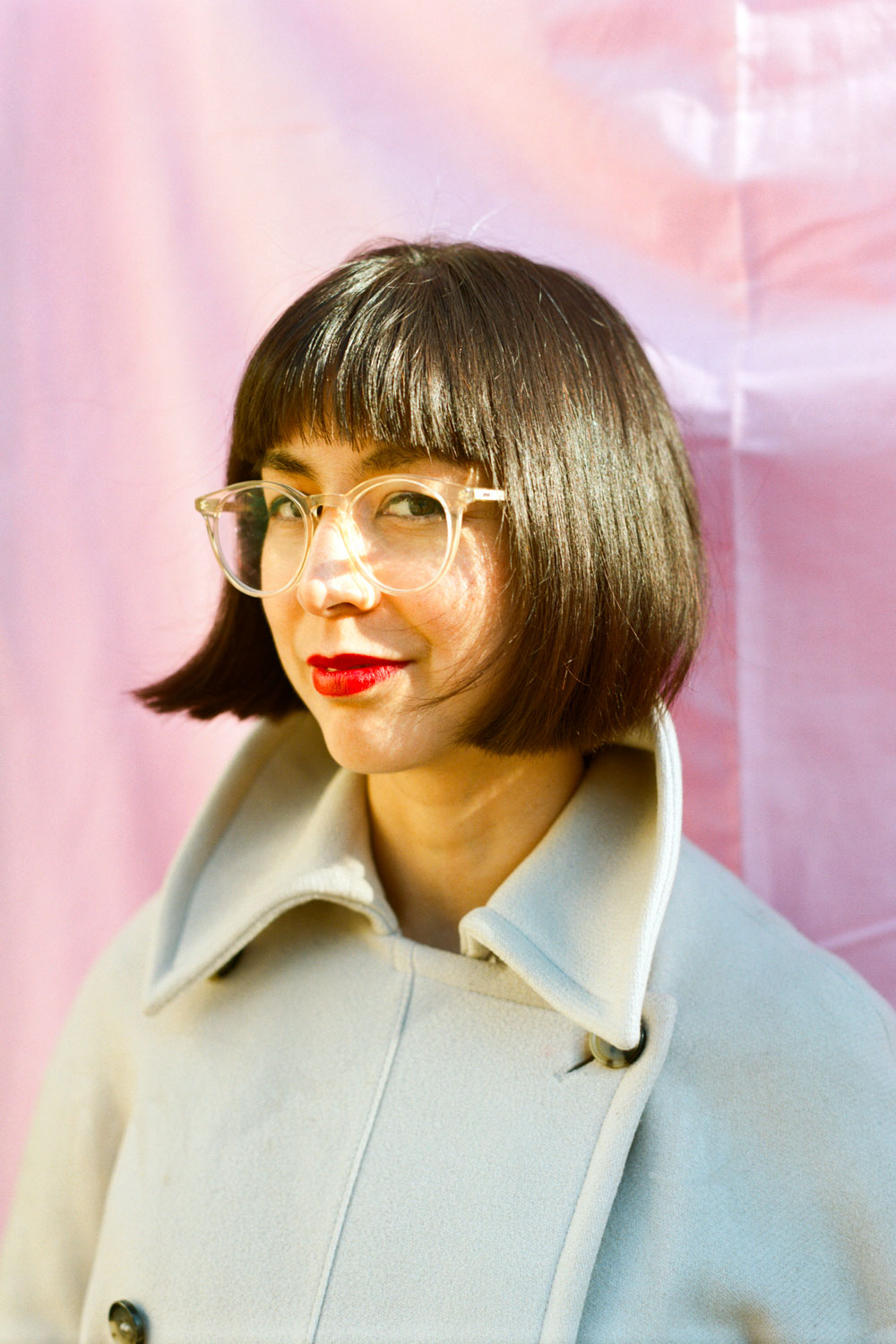
Interview: Kaliane Bradley, Ministry of Time
By
5 months ago
The author on the writing process behind her time travel romance romp
Kaliane Bradley’s The Ministry of Time was one of the most exciting debuts of 2024. Ahead of the Cheltenham Literature Festival, Tessa Dunthorne spoke to the author about writing the cross-genre time travel romp and the upcoming A24/BBC One screen adaptation.
About The Ministry of Time
The Ministry of Time follows an unnamed narrator who is recruited into a secretive government department which studies (and uses) time travel. Her role? To act as a ‘bridge’, a sort of modernity mediator, for handsome Victorian Arctic explorer Graham Gore, who had been presumed doomed by the history books. As the team of bridges and their various assignees from across history navigate the tensions of the past and present – gender and race attitudes, but also EDM and porn – something sinister is brewing under the surface…
Interview: Author Kaliane Bradley, The Ministry of Time
You’re speaking at the Cheltenham Literature Festival on 17 October about The Ministry of Time, your debut novel. What’s the panel on?
I’m really excited to be talking with Sarah Moss, chaired by Julia Armfield, two writers I admire so much. We’ll be talking about the continued appeal of writing about arctic exploration and the frozen north. I know Sarah’s novel, Cold Earth, is set in Iceland and looks at the first settlement there. I think the Arctic regions, those occupied by the Inuit, has some kind of bizarre, seductive draw for Europeans.
Both her and I have an interest in the strangeness of this particularly brutal colonial history; The Ministry of Time as well as Cold Earth, talk to the hubristic story of the men who were the astronauts of their day. It’ll be a really fun discussion about the draw of the Arctic.
And Julia is just a brilliant writer. There’s a line in Private Rites where a character is like, ‘oh God, I’m in the wrong genre of novel’, because she thought she was in one genre but it’s been a horror story this whole time. I’m looking forward to talking about genre and the way that can be played with and how this can be inflected in a text, because I spent a lot of time doing that within my book.
I loved The Ministry of Time. What struck was how it straddled genres – from climate fiction to romance to sci-fi to really strong literary prose – almost contrary to the commercial advice many would-be writers receive. Was that freeing, or a bit terrifying, pitching out a cross-genre book?
Yeah, it was so freeing. It helped that the first version of the book that I wrote was not intended for a wide audience, just some friends. This idea of ‘the market’ or its relationship to commercial value didn’t play into it.
Then, subsequently, when I was refining the book, it was interesting to explore why I was using genre in that way. Because, when we talk about genre, what we’re talking about is expectation, right? A genre reader seeks their niche because they expect certain tropes to be met, a certain type of reading experience. There are some things that they’re happy to leave to the artistry of the author, but there are expectations to be met. I think it can be quite fun, and I hope not too frustrating to read, to undermine some of the expectations or investigate ways genres provide a clash. How a romance might clash with a thriller, where you might be rooting for a romantic heroine who is also politically not that great. I really like that friction.
You’ve got to be a deft writer to pull it off, which you did. Did your experience working as a professional editor fed into how you write today?
I think the fact that I have worked as an editor made me more generous to myself, and allowed me to feel like I could play more. I think having experience dealing with the text on the other side, you get the best work out of authors when they are allowed a sense of play.
I am also very lucky in my editors in both the UK and US, who edited The Ministry of Time together that they were expansive and generous in where they let the text go.
And it paid off – it hit a good deal of commercial success. How does it feel looking back at the nominations and awards and reception a year on?
Manic. I did an event in Birmingham and the interview moderator suggested I keep a novel, because I might forget a lot of this. And it’s funny looking back because suddenly I’m hit by a memory of something I hadn’t really processed at the time. But in many ways a lot hasn’t changed. I still work at Penguin, I’m happy here, I’m quietly writing in an office.
But it’s very funny to look back at the text itself when I do readings. When you’re writing fiction, you feel like you are almost outside of the text, dismantling and playing with it. And then you return to read it and you’re like, ‘oh no, actually, the person. I was at that exact time is right there on the page’. Looking back on The Ministry of Time, it’s the words of the woman who was locked in her house during the pandemic and feeling estranged from her life. It’s visible to me now in a way it wasn’t when I was writing it.
And then, you know how it is. In publishing, there are loads of brilliant writers whose star will rise and fall and rise again, and success is a process. I’m very grateful it happened. It was completely extraordinary. It wasn’t [James Joyce’s] Ulysses.
You need both. I’ll say I found one book slightly easier to get into than the other and it was yours. Talk to me a bit about the process; you’ve said in previous interviews that your work began as ‘vignettes’ inspired by The Terror. Dare I ask: would you call its origins fan fiction?
Some people over lockdown had very kindly shared research with me, and listened to me speak about an obscure poem explorers that basically noone cared about. And as a thank you, I wrote funny vignettes about a man being dragged out of a doomed expedition, and having to deal with the modern day.
It’s difficult. The character it’s based around – Graham Gore – isn’t really in The Terror and not much like he is in the book. So not a fan fiction of The Terror.
But I think that fan fiction is a sort of community urge, a desire to keep telling a story to each other. And writing the vignettes came from a community-led urge, wanting to share, retell, reframe a story and putting it into a new context. So I would absolutely say it was a work of fan fiction, in that sense.
From there, how did those short stories become a fully fledged novel?
I thought the concept of Graham Gore dealing with the 21st century was a funny high concept. But the more that you begin to peel apart a high concept, the more you find a narrative under there. And very often a narrative is just whatever the author is stressed about at the time.
Throughout my life, I’ve been thinking about the experience of refugees and the experiences of refugees and immigrants, because I’m the daughter of an immigrant Cambodian refugee. So there concerns naturally manifested in the book, and in the form of time travel, as the metaphor for refugeeism.
Also, I started questioning as I wrote it – what would the British government do if they had time travel? How would this work bureaucratically? I just simply believe that once we get to the point where we’re going to other planets or time travelling there’ll be so much digital paperwork.
At what point in writing it did you realise that this might be a migration novel?
It was a process thing. I think it happened about halfway through because it’s fun to talk about people from the past reacting to the modern day. Like, oh my god, washing machine, wow I love EDM. But then thinking about why they’re reacting, it’s because they come from somewhere else and they can’t get back to that place and everyone they ever knew is dead. At that point, the link was being made. There’s this itchy point between ‘this is a fun character I’m playing with’ and ‘no, these people really died’, there’s this awful, tragic point in human history. They really ate each other. I started spiralling with it.
The expedition’s history made me think of Yellowjackets. Was there any media that fed into your inspiration?
There’s a novel called Night Watch by Terry Pratchett. It’s quite late in the particularly series and one of the main characters, commander of this fiction city watch Sam Vimes, is thrown back in time to his past. And in the city’s history, a great tragedy is about to occur. He has the choice to intervene or not.
Also Slaughterhouse 5 by Kurt Vonnegut which is a sci fi novel about time travel, but also about having survived the fire bombing of Dresden and being traumatised by it for the rest of his life. Time travel there was a manifestation of trauma.
The way time travel can be an allegory for the ways we experience time in the world, how trauma and time intersect, really interests me.
More on tension. How was managing the friction between Graham Gore as a romantic protagonist with the context of colonial history?
It was really tricky. I guess it came out of me constantly asking myself why I was so interested in these dudes who went to the Arctic. Because why was I so interested in this historic imperial expedition. I mean, partly it’s because there’s been great media about it, so I got really invested in it, but I think writing Gore as a romantic hero was me trying to explore my own interest in this thing that was really a terrible project.
You find yourself asking why the framework of the Franklin expedition has always been presented through the lens of the British empire rather than the Inuit people who had to deal with all these foreign peoples turning up, dying on their lands, and not even having an interpreter on the front. I think a lot of building the romantic hero this way was my dealing with that.
But again, there was this element of feeling slightly estranged from the world, because I was in lockdown and at the time also trying to write a novel about Cambodia. I’m a mixed race person who has never lived in Cambodia, and I was trying to unpick why I thought I was the person to write that book, why I felt obliged to, my own relationship with both Cambodia and my status as a mixed race person in the UK. A lot of that nervous, mental fidgeting went into the character of the bridge trying to understand how relationship to Graham Gore.
Do you feel that the avenues for mixed race British people to tell complicated stories are still open? I feel like the current climate is possibly closing some of those spaces down.
I continue to hope that they are being championed. You’re right that it feels difficult and and complicated because there’s a simultaneous demand that you write something representation – the window on x, y and z – and the there’s the one book by someone from a marginalised identity and then you’ve got that and It’s done. It’s very frustrating.
Again, I’ve been lucky in my editors that they were willing to accept a book that I do still think is about Cambodia but is also a time travel romance. Because I think it’s very difficult for a writer from a marginalised community to not internalise the commercial demand – to feel writing that book is the only way to get published. I really hope that people who are writing from a marginalised perspective don’t feel like they do have to do that. But I realise that’s a challenge that’s faced.
I wanted to talk to you a little bit about climate change in the book, too. Were you consciously weaving it in or is it simply a fact in contemporary fiction that climate change is a character now?
When I was being edited I was talking about this with my agent, because it had never occurred to me not to have climate change in there, just because it is our contemporary reality. When you write contemporary fiction, you know, everyone describes seasons. The weather now is unseasonably hot because it’s always unseasonably hot. As well, I was writing this at a time where we had just had that insane heatwave of 40 degrees. It was so physically exhausting in that that world, trying to imagine how we could keep existing in that world, and I was trying to write a novel while sweating and watching tarmac melt outside. The thing that scares me most in the world is the climate crisis, like, it is the thing I think about and feel my heart plunging to my shoes.
Were you surprised when you then were nominated in cli-fi awards?
I was so thrilled, and it felt nice to have that recognised because it was just one of many storylines in the book. During a very early round of edits in the book, before it was sold, we were talking about what could be taken out, and it was a thread I was really keen to keep in. Otherwise a lot of the stakes of the book didn’t make sense to me. So it was wonderful to be nominated. It was a great long and short list, and it went to the right winner, Abi Daré. I loved that prize.
And, you know, we were just talking about commercial potential – and the perceived narrowness of the market. It’s was nice to find out people might read it for that, that readers are willing to meet you on so many different levels.
And you’ve got an A24 and BBC One adaptation on the way, with Alice Birch screenwriting it – killer combo. How involved are you in developing it?
I’m not! I’m not a screenwriter, never written a screenplay, whereas obviously with The Ministry of Time I’d written novels before. All terrible, but I’d had some practice. I really trust Alice, I’ve seen some of the scripts, and of course it’s for TV so it will change. But I read it and I’m like, my god, this makes so much sense. She really gets it. I feel very confident that any changes they make are in the spirit of the book, adapting it for a new medium. And I don’t have any expertise in that medium, but Alice does.
So tone, casting, changes… Are there any details you can share or is it zip tight?
Zip tight, I’m afraid. But it’s ongoing, which is exciting, because, as you know, when things get optioned, it doesn’t mean they’re getting made. But this looks like the momentum is there. It’s ongoing.
And I know you’re working on another novel. How’s it going?
It’s going so badly! I can tell you candidly that in April, I handed in a full finished second novel, and my editors sent me the kindest editorial notice that they possibly could, because the book is awful. I’ve had to scrap it and start over from the beginning. Had to delete the whole thing to start from the beginning, because it was that bad. So that’s how it’s going!
Oh no! It’s good to be candid about having trouble. And it’s amazing to be given the opportunity to keep iterating.
Again, I feel like I’m in really good hands. My editors could have very easily been like, ‘sure, fine, we’ll just publish it, because the other one went well.’ But they didn’t. They have been willing to give me the time and space on it.
Is there a story or novel you envision in your future one day?
I still think about the novel I was trying to write about Cambodia. I think at this point I might not be a mature enough writer to do it justice. I’m trying to move away from the idea that I’m not ‘allowed’ to write it, because I think the idea of people being allowed or not allowed to write things is restrictive. I think maybe it’s better to think about what a writer can speak about resonantly. I’m maybe not there yet. But I hope to be one day.
Cheltenham Literature Festival
Kaliane Bradley will be in conversation with Sarah Moss, interviewed by Julia Armfield, at the Cheltenham Literature Festival on 17 October 2025.


